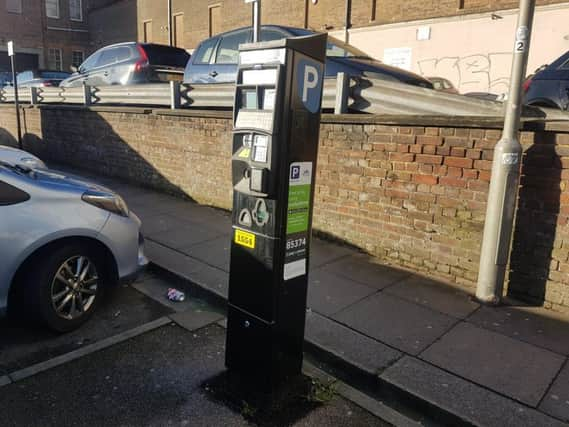Parking charges largely frozen in Brighton and Hove


Of the 230 tariffs for on-street, off-street and resident parking across the city, just six are proposed for an increase from April 2018.
But the rises that are proposed will be aimed at ‘high-demand areas’ and are set to address air pollution and congestion concerns.
Advertisement
Hide AdAdvertisement
Hide AdA report to the environment transport and sustainability committee points out that 80 per cent of on-street parking machines charge £1 per hour or £5.20 all day.
The main change is that drivers visiting residents in busy central areas will pay more, the council said.
Visitor permits will rise from £3.50 to £4.50 in Brunswick and Adelaide (Zone M) and Central Brighton North and South (Zones Y and Z).
The council says this reflects higher congestion and parking prices in these areas and compares favourably to usual on-street prices in the zones, ranging from £6.20 to £10.40 for four hours. A visitor permit lasts one calendar day.
Advertisement
Hide AdAdvertisement
Hide AdVisitor parking in low-tariff areas will rise from £3 to £3.50 for a calendar day permit.
Four hours at Brighton’s busiest car park, the Lanes, goes up from £13 to £14, and four hours at Regency Square goes up from £9 to £10 and nine hours rise from £12 to £13.
Nine hours parking at Norton Road car park goes up 20p.
The council said under its plans, vehicles may need to be more eco-friendly than before to qualify for low-emission 50 per cent discount on permits for residents, traders and businesses.
Qualifying vehicles will now have to emit no more than 100 grams of CO2 per kilometre, compared to 110 before. Prices will rise 25 per cent for higher-polluting vehicles emitting more than 166 grams per kilometre.
Advertisement
Hide AdAdvertisement
Hide AdSince April 2017 diesel vehicles no longer qualify for the low emission discount.
New figures are recommended for approval by councillors on the environment transport and sustainability committee on January 23.
Committee chairman Cllr Gill Mitchell said: “Parking charges were introduced to better manage scarce road and parking space – and these few increases reflect that. Otherwise, available spaces would be occupied all day by the same vehicles and the roads would be jammed with cars looking for spaces. Parking prices remain fair given very high demand. All the money raised is spent on older people’s bus passes and other measures to improve transport.”